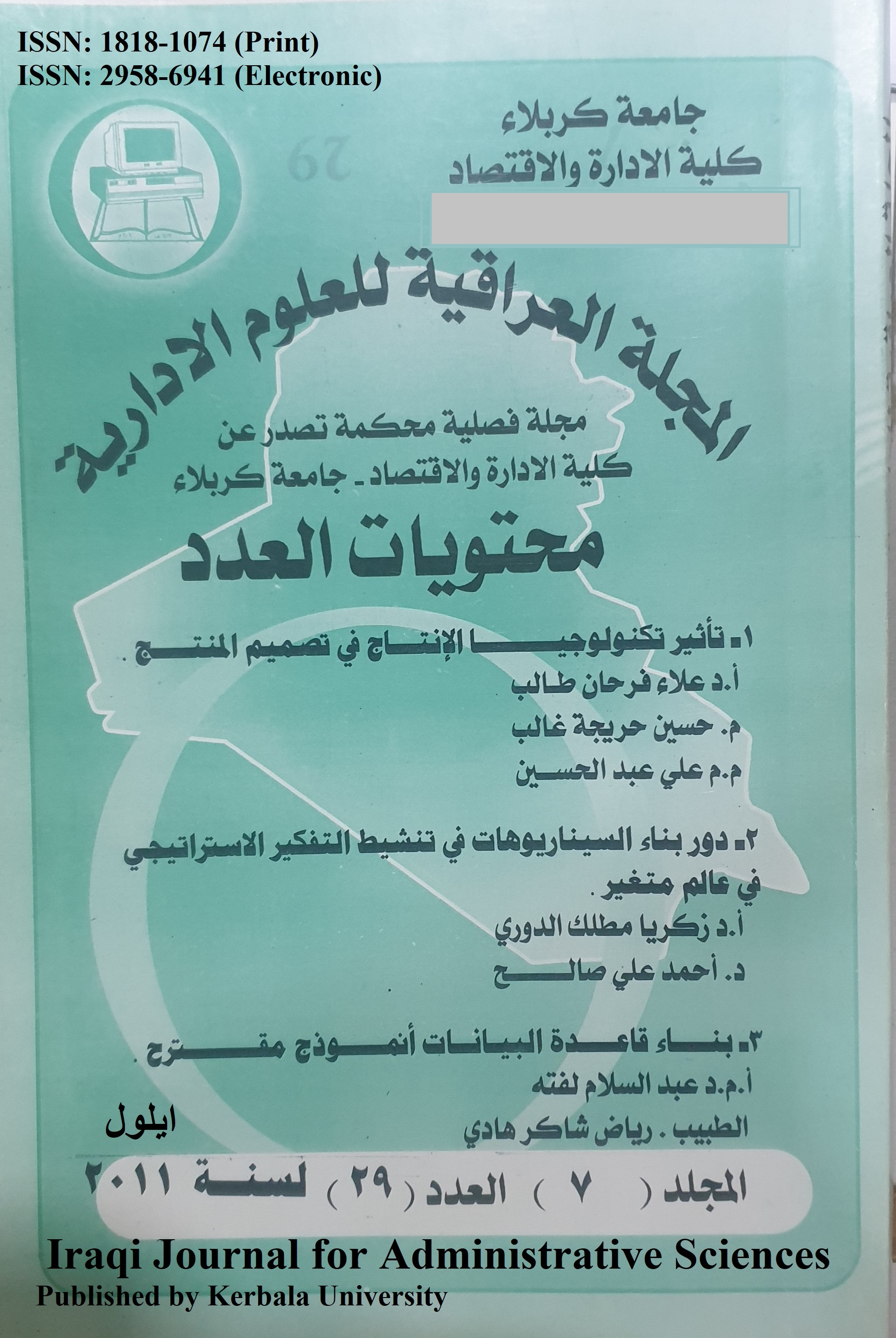Skill and their impact on organizational performance, qualitative Alemtemizbiges applied in the headquarters of the Zarhaltalim Higher
Keywords:
organizational skill, performance, qualityAbstract
Is the skill of the most topics of concern to organizations focused a large part of their efforts and their money Nhotnoaa and the escalation of the level of skill, and as a researcher believes that the regulatory aspects have not received adequate attention and care it deserves study and search for her mysteries, and the effect ..... By researchers and even senior book despite what is referred to in all disciplines need to acquire workers Mharhotaliq many of the problems, losses and failures to lack of skill, strive most organizations about performance quality (excellent) based on the degree of a good education, shows a large part of it body knowledge levels ranging between high to low, strengthen later in more training and workshops, diverse and continuing to fill gaps in the performing and shortcomings and evaluation (if any) Nhotal specialized knowledge of Jhhuallaguetha knowledge from other Jhhakhary addition to achieving Halhalthdat constant that knowledge. <br /> seeking organizations device Iraqi state performance, quality excellent and Aargaha failed attempts designed to achieve that the encountered obstacles and pitfalls are many and varied, as well as the staff, everyone is keen to progress great strides but the results are frustrating to the resolve to continue this approach, is still determined in place and the idea of research evidence for that. <br /> problem of the research knowledge limited Bmngaran presidents first is skill organizational (possession, use, significance) and the other qualitative performance outstanding (the presence of the criteria, the application has, the responsibility of citizenship) and represents these two variables the focus of research adopted by willing to study the effect of skill organizational performance in quality excellent and bring the knowledge of these two variables as well as determine the extent of proximity or far we are from ideas of Deming based on the ground since 1951 in our organization under study. <br /> The researcher approach (exploratory data collection, descriptive analytical view and analyze the results and interpretation of the organization in question, and applied study in a sample unintended random degree Head in the community and the Ministry of Higher Education and Scientific Research. has met a researcher difficulties in the theoretical side of what was written in performance (privileged, optimum, high, superior, strategic, successful ......) and the lack of what is written on the principles of Deming together to improve the quality of performance and the scarcity of research on skill, as well as difficulties of movement of data collection and distribution Alastbanaotslmha and the researcher to inter conclusions and most important a relationship Manobh and significant effect of the skill of organizational performance quality excellent, and there are significant differences between the averages of answers categories of the research sample, and the most important recommendations to clarify the importance of regular hours all concerned, with a focus on the kinds of skills and the degree of importance of each employee to perform the work required level. research includes four sections the first devoted to the methodology of research and brief summary of Hiklahanizh under discussion, and the second shows the theoretical framework of knowledge for each of the skill and Aladaoualnoaa outstanding, while a third one present, analyze and discuss data side of the field and was the last to show the conclusions and recommendations
Downloads
Published
How to Cite
Issue
Section
License
Copyright (c) 2011 College of Administration and Economics - University of Karbala

This work is licensed under a Creative Commons Attribution-NonCommercial-NoDerivatives 4.0 International License.
Authors retain the copyright of their papers without restrictions.




